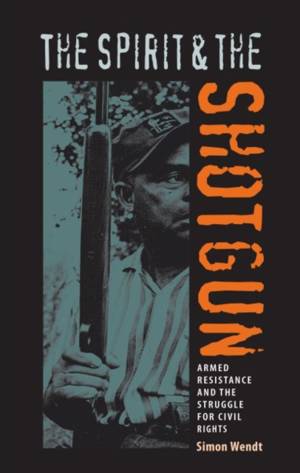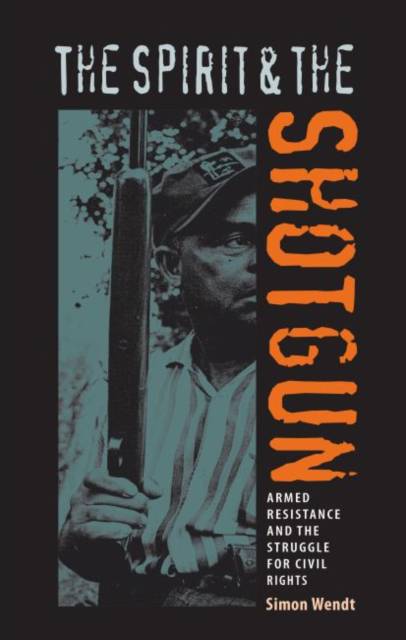
- Afhalen na 1 uur in een winkel met voorraad
- Gratis thuislevering in België vanaf € 30
- Ruim aanbod met 7 miljoen producten
- Afhalen na 1 uur in een winkel met voorraad
- Gratis thuislevering in België vanaf € 30
- Ruim aanbod met 7 miljoen producten
Zoeken
€ 55,95
+ 111 punten
Uitvoering
Omschrijving
The Spirit and the Shotgun explores the role of armed self-defense in tandem with nonviolent protests in the African American freedom struggle of the 1950s and 1960s. Confronted with violent attacks by the Ku Klux Klan and other racist terrorists, southern blacks adopted Martin Luther King's philosophy of nonviolent resistance as a tactic, Wendt argues, but at the same time armed themselves out of necessity and pride. Sophisticated self-defense units patrolled black neighborhoods, guarded the homes of movement leaders, rescued activists from harm, and occasionally traded shots with their white attackers. These patrols enhanced and sustained local movements in the face of white aggression. They also provoked vigorous debate within traditionally nonviolent civil rights organizations such as SNCC, CORE, and the NAACP.This study reevaluates black militants such as Malcolm X and the Black Panther Party and also appraises largely unknown protective agencies in Tuscaloosa, Cleveland, and other locales. Not confined to one state, one organization, or the best-known activists, this is the first balanced history of armed self-defense that begins with the southern civil rights movement and ends with the Black Power era.Drawing on extensive research from a wide variety of sources to build his case, Wendt argues that during the Black Power years, armed resistance became largely symbolic and ultimately counterproductive to the black struggle--no longer coexisting with peaceful protest in "the spirit and the shotgun" philosophy that had served the southern movement so effectively. This is an essential volume for historians and students of the era.
Specificaties
Betrokkenen
- Auteur(s):
- Uitgeverij:
Inhoud
- Aantal bladzijden:
- 304
- Taal:
- Engels
- Reeks:
Eigenschappen
- Productcode (EAN):
- 9780813030180
- Verschijningsdatum:
- 18/02/2007
- Uitvoering:
- Hardcover
- Formaat:
- Genaaid
- Afmetingen:
- 165 mm x 244 mm
- Gewicht:
- 585 g

Alleen bij Standaard Boekhandel
+ 111 punten op je klantenkaart van Standaard Boekhandel
Beoordelingen
We publiceren alleen reviews die voldoen aan de voorwaarden voor reviews. Bekijk onze voorwaarden voor reviews.











